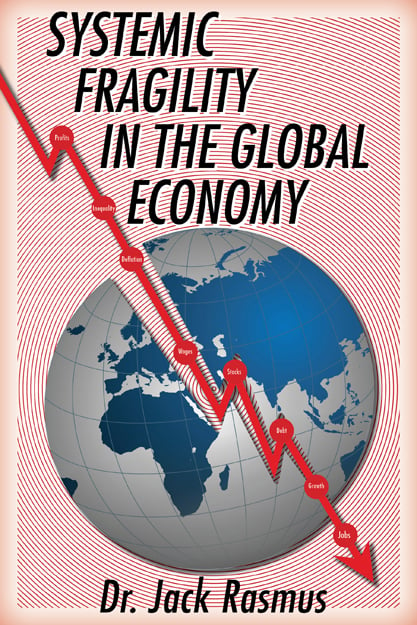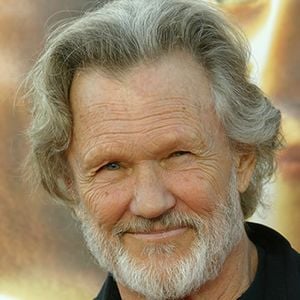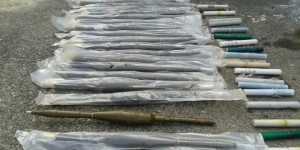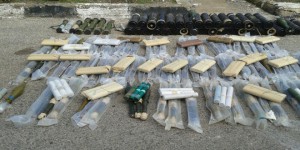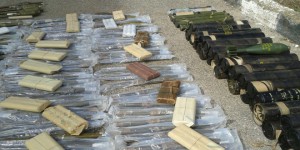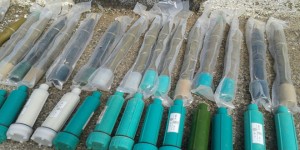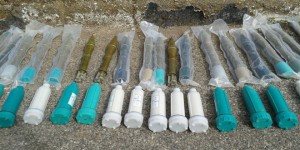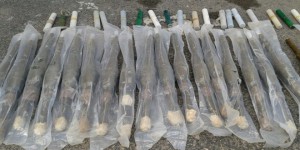Of the countries that are off-track on the road to sound development, many are situated in the Arab World. The worst hit are either in conflict, near conflict or post conflict zones. Even when not undergoing the war disaster, the fragility of their development is further compounded by the prospects of war. In addition to the actual or potential woes of conflicts, their slow rate of progress is characteristic of small risky markets or capital scarce structures that have adopted unconditional liberalisation measures (real capital scarce and not financial capital). For the most part, these countries still depend for their economic growth on the export earnings from a primary product: namely oil. When oil prices fall, economic growth stumbles, and an already poor development showing suffers yet another setback.
Yesterday’s accomplishments are frequently written off by a combination of war dislocation or anti-developmental macroeconomic policies. The latter are policies whose interface with reality does not sufficiently mobilise idle resources, as in putting the unemployed to decent work. For the group of risk laden and underachieving Arab countries, which comprises the overwhelming majority, the crunch on their course of development happens to be fourfold.
First, the determining moment in their development lies in the fact that the decision making circles often involve a cross-national class alliance for which another small country developing its productive capabilities in a world that is already consumed by a crisis of overproduction is unwanted. Furthermore, US-led imperialism, for which militarisation is not only a domain of accumulation, but the gyroscope that steadies its course of development, stands to benefit from the war and its social, political and financial impact.
Secondly, in addition to the calamity of war, the prospects of spreading conflict dampen investment and impose a drag on economic, social and institutional development. In many cases, war acts as a massive primitive accumulation measure expropriating labour and de-nationalising resources, after which the newly socialised working people (people thrown into the job market in search of wage jobs) and denationalised resources are only selectively re-engaged back into production. In the Arab World, once uprooted as a result of war or development-supressing macro policy (as in the simultaneous retreat of supply and demand), more of the dislocated people remain jobless or per the necessity for survival engage in informal poverty employment.
Thirdly, although economic growth, rapid industrialisation and technological advancement are indispensable conditions for development, they are pointless when governments restrain popular participation or, to use of the phraseology of the right development from the cold war era, constrain the capabilities of people to achieve different valuable human ‘functionings.’ The cold war competition for social development raised the ceiling and the resources needed to achieve socially desirable targets (UN convention on the right to development 1986).
Fourthly, the Arab World is a region that exhibits acute income inequality (UTIP 2011). Labour share from total income declined significantly between 1980 and 2010, and reached rates of around 25 percent (Guerriero 2012; ILO 2014). Without more evenly distributed income and wealth among different sections of society, the demand component that drives the momentum for auto-generated growth slows down.
Since the beginning of the neoliberal era (circa 1980), most of Arab economies have come to increasingly grow from ‘without’ by the incongruity of oil prices, geopolitical rents and war-like tensions. The fact that so far they have not harnessed their internal resources for the purpose of development implies that the goal of development was not a constituent part of the national security structure. It also implies that such departure of security from development concerns is a product of an internal social class disarticulation and, hence, a serious crisis not only of governance but also of the state. The consistent instantiation of a schismatic social contract, including its attendant non-autonomous legislative and judicial functions, blocks the intermediation of the interests of various strata in society.
Moreover, in spite of hollow growth exhibiting a low elasticity of growth to unemployment reduction over the past three decades, macroeconomic policies dictating resource allocation remained unchanged. The jobs I am speaking of are always in the decent work category of the ILO, unless otherwise indicated. In a sense, one can safely say that the historical agency in charge of development reproduced pretty much the same policies cum meagre development outcomes time and again.
Another characteristic of Arab economies is the slow dynamic rise in labour productivity or, the often observed, negative productivity growth rate. Labour productivity growth is the nucleus of wealth creation and, when missing, it demonstrates the slow progress of indigenously based growth – growth from within derived by national capabilities – or growth that is based on the infusion of national R&D and knowhow in production. One is aware of the rising technical composition of capital from technology imports displacing labour; however, in the Arab world, there are no significant positive linkages between the spill over of externally imported modern technology and local capacity. At any rate, in the composition of growth, the elements of nationally based production, consumption and the policy designated automatic stabilisers cannot steady the business cycle in the face of minimal external shocks. Oil price drops and the business cycle follows suit. Only a decade or so ago, budgets were formulated on the basis of around 20 US$ a barrel. In 2015, the budgets required roughly 80 US$ per barrel to be balanced. Dependency on oil grew at very high rates and most Arab economies became more vulnerable still.
The positive developmental impact resulting from a transient rise in oil prices is either a stabilisation measure, which does not filter into the sphere of production (it mostly boosts consumption), or is sapped by poorly conceived macro policy, which does not redress the most pressing economic concern: the often negative productivity growth rate. Moreover, without the synergy of productivity-based growth with rising incremental value-added income (including wages) driving the demand for the infusion of knowledge in production, the cultural spinoffs that would egg on progressive institutional change would be missing (UNHCHR 2004). Tangentially, the goal of ‘nationalising’ jobs (replacing foreign by national labour) or synchronising labour to capital’s requirement is pointless when the virtuous circle of productivity growth cum economic growth has not taken root or when growth largely depends on oil revenues. There are no significant decent jobs in the technical skills category being created by the national economy; these qualitative jobs pertain to the industrial culture of the more advanced countries. The conditions for the brain drain are therefore objective. By the standard definition of development, which is economic growth, with expanding output and employment, institutional transformation and technological progress, Arab countries have been experiencing lumpen development.
In times of high oil prices, output per worker growth (a proxy of labour productivity) appears positive and somewhat astronomically high, but when oil revenues are deducted from total income, output per worker growth is more often negative than positive. The productive capital stock per worker, or equipment of the modern technology type that grows from the nationally-induced need to capitalise both capital and labour in order to meet demand, is not rising (Kadri 2014).
It is true, but more so a truism, to assert that reviving these debilitated economies requires an end to conflicts and the creation of a politically stable environment, conducive to both domestic and foreign investment – investment of the higher output to capital ratio type – along with rising internal demand. Yet, as true as this assertion may seem, the regional security/insecurity arrangement is now anchored in a bellum americanum or continuous war condition emerging from more acute international divisions over regional control. The spinoffs of war on the political and economic side are regressive. On the national political scene, a process of ‘selective democracy’ similar to the one practiced in ancient times – as opposed to universal or popular democracy – which enshrines the right of the few at the expense of the many has grown further. On the macroeconomic side, policies may have taken a turn into a sort of extreme neoliberalism, as in lifting subsidies on essential commodities in countries that already experience a high rate of malnutrition in children (Everington 2014).
Although it is practical to develop a macroeconomic strategy that envisages development in view of risk, the current policy interface between external shocks/conflicts and the national economy is based almost entirely on the non-existent assumptions of an even-playing field, a risk-free environment and a market that works best with little government intervention. Not that demanding a limited role for the government in the economy would be necessarily functional anywhere, but to propose a small government under war or war-like conditions, as did the International Financial Institutions, is beyond the pale. When the elephant in the room, the wars or their resonances and the lopsided institutional context, is overlooked, then it is no longer myopia on the part of the cross-national agency in charge of development, which is causing the past errors to be repeated, it is rather its marked lack of will to carry out development.
In circumspect operational terms, reaching the development goal in such an uncertain context has to address the issue of managing the welfare intermediated side of the macro-economy subject to a plethora of economic and extra economic constraints of which, principally, the political risk/insecurity level reproduced conjointly by regional and extra-regional agents overshadows the course of events. Nowhere is it easy separate the politics from the economics, but in small developing countries exposed to war-like risk or historical uncertainty, the operational problematic prioritises ‘politics’ or the decision making level as the principal control variable. The past and current performances, a caption of which is reviewed below, overlook the interrelatedness and the structure of determination between politics, much of which revolves around a primacy of political and strategic extra-regional control (imperialist) considerations, and the national ‘economic’ framework.
The past recipes of economic reform intended to crowd in political reform as a result of oiling the market machinery for a frictionless welfare maximising outcome occurred only on the pages of first-year economics textbooks. Moving from the public to the private sector and from closed to open economies did not shift resources into more competitive areas. According to the World Bank, the Arab share of manufacturing in investment is declining almost everywhere, and the share of manufacturing in GDP is lower than that in all other developing regions except Sub-Saharan Africa (World Bank 2011; World Development Indicators various years). The share of high-technology exports from total manufactured exports in the AW is at around 1 to 2 percentage points, below the rank of Sub-Saharan Africa – including South Africa, which is around 5 per cent (World Development Indicators various years; World Bank 2011).
Because of capping indigenous industrial supply capacity, or the type of production that issues from a multi-layered and nationally-based supply chain, Arab countries had to remain namely dependent on raw material exports (UNIDO 2014). For fast neoliberal reformers and slow reformers alike, the present condition of low oil price, steep deficits cum low output growth is telling of how past and present parochial policies failed to identify the principal conduit of regional development, which is overdetermination by their mode of integration with the global economy through the intertwined channels of oil and war. Not that there are exceptions to the rule of development failures, but in case there is an odd or sporadic achiever, the explanation of developmental success could be carried out more fittingly on geopolitical grounds or as a result of geopolitical rents rather than ‘indigenous economic performance’ grounds. The shifting regional cordon sanitaire is a primary explanatory variable of development, or mostly, underdevelopment.
The putative case may be that some Arab countries may have needed to liberalise trade, but not willy-nilly as they have done. Trade liberalisation could have been selective and conditional and within their own respective regions first, such that their negotiating position and accession into the global economy does not come at the expense of national industry and food security, for instance. But, it was not. Arab countries import more than half their food consumption and some food dependent and cash-strapped countries have to borrow to buy their basic foods (Bush 2015). More so than in the run of the mill circumstance, in a war-tense atmosphere, even the United Nations thinks it may be wise to be choosy about what to liberalise and only in relation to developing the national industry and to respond to the strategies of the big trading partners and the demands of their markets (UN 2008). However, deindustrialisation or the shift from industry to commerce based growth in the neoliberal era, also shifted the social structure, its class formation and the entrepreneurial mind-set. Just as in the days of colonialism, the leading strata is re-confined to the practice of commercial undertakings; but of course, this time around without military colonial presence. In a sense, the new merchant class in charge, a subordinate partner of international financial capital, acted as the surrogate colonialist. For such a class, short term profits from commerce and finance outstripped the prevailing slow growing profit rates of national industry.
In the neoliberal era, the bonds of the merchant class to international financial circles grew over time, and its reproductive base has come to depend more on the safety of the international financial markets than the capacity of the national economy to produce. As a result of shifting the ties of the national governing structure from the national to the international base, disciplining profit rates for the sake of industrialisation, as did East Asia for instance, was not tabled in development considerations and practice.
Argumentatively, it may have been valid that there need be a boost to the environment for the growth and development of the private sector, but such position need not view the public/private investment relationship as antagonistic, as does conventional wisdom. In practical terms, for public investment to crowd out private investment is nearly impossible (Weeks 2014). When the risks to private returns are high, and potential resources are plenty, a better managed public sector acts as a quasi-insurer of private interests. The downgrading of the public sector in terms of size and quality performance could only be attributed to unfettered short-term profiteering around the deconstruction of state functions and is partly responsible for the overall slack in economic performance. The social consequences of such measures could at times buttress the real conditions for war-making or compare with the baleful effects of war.
That development required diversification away from primary products was the refrain that one often heard in every Arab summit since of the early 1980’s. However, as regionalism and/or transforming countries into regional building-blocs to expand markets requires at least the promotion of investment in intraregional infrastructure, given the low rate of regional integration (intra-regional trade and investment are quite low in global standards, UN 2011), moving away from oil appears to have never been a seriously pursued goal. Other palpable indicators of diversification would include rearing national industrialisation by protection and market expansion, and complementarities that synchronise physical and human capital in the composition of economic growth; both of which, however, exhibited declining rates (industrialisation, as in the manufacturing side, declined [UNIDO 2014] and structural unemployment rose [ILO 2014]). Once a merchant or extractive mode as opposed to an industrial mode takes hold of an economy, the extraction of surplus would not depend on value added and market expansion – exchange-based trade alone creates little added value – and entrepreneurs become sort of economic introverts whose spoils arise from raising their income shares within their own fief.
When addressing the macro economy in this class of risk-exposed countries, questions have to be put differently. There is already the inherent weakness of being born a colonially-bread late-developer. Naturally, colonialism blocks developing countries’ modernisation relative to its own ability to control because, at least on logical grounds, if all modernise, things do not add up as result of the adding up fallacy. With the exception of the sparsely populated Gulf states, Arab countries represent roughly less than half a percentage point of world purchasing power (WDI various years). Having a vantage starting point and being secure, the opposite of what Arab countries are, matters in the race for development. In addition, the neoliberally inspired resource allocation mechanisms were more like the tribute delivered to empire as a condition of surrender. In retrospect, the merchant class was smug with Arab defeats and used defeatism to drive the unconditional neoliberally imposed policy agenda.
Consider why that when revenues from the export of primary commodities rise, the rate of retained savings dwindles afterwards, as in the aid syndrome. The policy set up is such that as consumption, namely of the conspicuous type, rises steadily drawing on national savings and reserves, less and less savings would be left for investment in productive activity when oil revenues fall. One can dwell on the point, but what is important to realise is that an economic contraction/expansion could be triggered by an external shock, however, its magnitude and duration is determined by the adequacy of economic stabilisers, the sturdiness of the industrial constituents of growth and the efficiency of institutions. The prolonged economic contraction in these countries, (a 1 percent real GDP per capita growth on average between 1980 and 2010 [WDI various years]), therefore raises more questions regarding the decision making process behind the macroeconomic constellation, including why governing structures had foreknowledge that they had to diversify and support national industry, and yet failed persistently to implement such a project. Of course, the leading social forces, US-led financial capital through its imperialist thrust point and the financially integrated local merchant class, whose organic ties grow by the homogenising effect of financialisation, have become undifferentiated in the role they have played in such regressive process. While financially groomed profit rates reduce the share of wages everywhere by varying degrees of austerity, for lack of internationalist ideology and organisation, labour has become ever more divided.
Let us for the sake of argument follow another of the mainstream’s positions as applied to the Arab World, as in freeing the environment to invest, which presumably could have been a boon. In reality, the rates and quality of investment fell consistently over the neoliberal period (WDI various years). Without an investment guiding institution and an insurance framework underwriting war-like contingencies or force majeure attributed losses, small, risky and fragmented markets, presided over by a mercantilist-like class, channelled investment into short gestating capital, speculative or non-productive activity, which in turn, required low productivity service sector jobs. To boot, reducing the public sector’s job creation rate and investment did not better employment conditions. Alongside public sector cuts, deindustrialisation reduced the rate of decent job creation far below the rate of new entrants into the labour force (UNIDO 2014). One has to keep in mind, that population growth rates tapered down steadily as of 1960, and unemployment cannot be attributed to rising population levels, especially when the mix of macro policy adopted, since circa 1980, lowers the rate of growth, changes its input composition and lowers its reliance on upskilling national labour. Hence, rising unemployment and poverty were necessary outcomes of unconditional liberalisation.
Welfare in this instance could not have been conceived with a view in which private interests carry forth the betterment of public interests. The extractive and merchant bases of the institutional context and its rules are such that, at the intersection where private and public interests meet, there is more antagonism than complementarity. Moreover, because of the stronger material ties of the governing merchant class to the international financial market, as finance dictates lower labour shares through austerity, private interests exhibit a necrotrophic relationship with the public sector (they feed of it until it perishes). In a situation, which is overdetermined by a constellation of extra-national (militarised imperialism), and a subordinately national merchant classes, the end goal of the decision making arrangement is not necessarily the wellbeing of the region. Ironically Milton Freidman’s ‘bang for buck’ appears hold, but in reverse of course. Being in Milton’s long term now, there are currently higher returns from past social investment, market rigidities and government intervention that trail from way back in the seventies and continue to impart welfare and a modicum of institutional integrity; past spending on social investment more than paid off the initial costs. All on its own, a social efficiency criterion under selective openness in which social investment and decent job creation was state planned appears to have outperformed an economic efficiency criterion based on fantastic marginal magnitudes making prices ‘right’ for growth. In short, the rigidities of the past contributed to enhancing health, education, productivity and the sort of self-reliance that boosted national security.
Macro issues are interrelated and questions about their efficacies beg their own answers. For instance, to what extent is the problem of unemployment in some of these countries an outcome of monetary policy that targets low rates of inflation with no regard to unemployment? To what extent is the problem of stagflation in some countries an outcome of a policy-mix of increasing short term interest rates along with national currency devaluations? To what extent has the adverse impact of a chronically high rate of unemployment aggravated the contraction triggered by an external shock (falling oil price) and thus created a debilitating path dependence?
To parody this situation without the trappings of postmodern hallucinations, the mechanisms behind these questions are like various irrigation valves channelling resources between several nationally based working strata and internationally based financial interests. To demystify, they are about who (which class) has enough power to get a higher share of income and how much. As labour share from total income fell to the lowest global ranks as a result of and absence of politically organised labour, inflation and wage compression, the steadying of the national currency against the dollar (pegged rate) channelled wealth not only up within the same society, but also abroad. Countries with balance of payment constraints are short leashed by institutional lenders who can wreak havoc on nation states by simply delaying disbursements that support the national currency (if national currency devalues, inflation rises, etc.). In a sense, this policy, as do many other neoliberal measures, makes corruption legal. That is to say, if corruption is defined as the diversion of public wealth to private use: the past and still ongoing exchange rate and monetary policy under open capital account regimes, which was not only legal but also supported by major international financial institutions, is corruption at large.
But to go back to our questions, the answer to all three problems may be drawn from any standard second-year macroeconomic textbook: a country cannot peg to the dollar under an open capital account, and still hold on to an effective monetary policy. However, it is not the effectiveness of monetary policy that comes first; it is the ownership of policy or policy autonomy emanating from the margin of state sovereignty. The sovereignty qua security of Arab states has become less substantiated by developmental capabilities, knowledge assets, human wellbeing and freedoms. More so, in times of war or war-like conditions, in the Arab World, the ultimate sovereign may be allegorically deduced from the inscription on the side of Louis XIV’s canon: ultima ratio regum (the final argument of kings). The military balance of forces, in which imperialist intervention holds sway, has become the broker of sovereignty and, along with the ideological avalanche of neoliberalism, these explain much of the lost policy autonomy since 1980.
Regaining development means regaining policy autonomy under conditions of popular sovereignty. The positive relationship between policy space and positive developmental outcome is such a straightforward question that, in spite of its sensitivity, was addressed by the UN: ‘the idea of policy space refers to the freedom and ability of governments to identify and pursue the most appropriate mix of economic and social policies to achieve equitable and sustainable development’ (UN 2014). Yet, in the typical half-truth type positioning resulting from the UN’s subordination to the dominant imperialist power, it attributes loss of autonomy, in one instance, to ‘various legal obligations emerging from multilateral, regional and bilateral agreements’ (UN 2014). It appears as the UN Security Council deals with the possibility of regional wars escalating into global ones, state sovereignty has become a by-product of a universally democratic international law, in which honouring agreements is part of the gentlemanly behaviour of Western nations. In significant swathes of the third world, violent forms of class power exercise determine much of autonomy. Class power is not the ahistorical person or group in executive office with megalomaniac individual agency; it is the full weight if history, its dominant ideology, and monolithic institutions into which Arabs and Africans are born.
The higher rate of value and resource dislocation resulting from the violence of war has been contravening the covenants of international law and the charter of the UN since 1945. In hierarchically articulated class structures, smelting together with finance and socially cutting across national boundaries, the consumption of humans and nature, often by brutal means, is necessarily but not exclusively a historical precursor to global economic growth. The Arabs and the Africans are not ‘wretched’ by historical coincidence. They are so as a result of all round and systemic imperialist assault. The order of causal determination, whose recognition is the litmus test of independent scholarship, begins with the leading class’s ideological bent to promote the under-valorisation of the weakest spots in the developing world by aggression.
Ali Kadri is Senior Research Fellow at the Middle East Institute, National University of Singapore. He was previously Visiting Fellow at the Department of International Development, London School of Economics (LSE) and Head of the Economic Analysis Section at the United Nations regional office for Western Asia in Beirut.
His current research is on the political economy of development in the Arab World. During his work at the United Nations, he was the lead author of the UN flagship publication dealing with the economic and social conditions of Arab Western Asia, and he has published widely on aspects of the labour process in the Arab world. His recent book, Arab Development Denied (2014), discusses the formidable obstacles facing development in the Arab world.
He can be reached at [email protected]
References
UN, General Assembly, 4 December 1986 A/RES/41/128, 97th plenary meeting,
http://www.un.org/documents/ga/res/41/a41r128.htm
UTIP (University of Texas Inequality Project) (2011) Estimated Household Income Inequality Data Set. http://utip.gov.utexas.edu/data.html
Guerriero, M. (2012) ‘The Labour Share of Income around the World: Evidence from a Panel Dataset’, IDPM Development Economics and Public Policy Working Paper Series, no.32
UNHCHR, Economic and Social Council, Working Group on the Right to Development, Geneva, 11-20 February 2004.
Kadri A., ‘The New Middle East: Protest and Revolution in the Arab World,’ Fawaz Gerges (ed.) A pre Arab Spring Depressive Business Cycle, Cambridge University Press, 2014.
Everington J. and El Gazzar S., Consumers hit hard as Egypt subsidy cuts send fuel prices soaring 78%, July 5, 2014, http://www.thenational.ae/business/industry-insights/economics/consumers-hit-hard-as-egypt-subsidy-cuts-send-fuel-prices-soaring-78
World Bank (2011) Middle East and North Africa Region, Assessment of the Local Manufacturing Potential for Concentrated Solar Power (CSP) Projects (Washington DC: World Bank).
Bush R., Uprisings without Agrarian Questions in Development Challenges and Solutions after the Arab Spring, ed. Kadri A., Springer 2015
UN (2008) Survey of Economic and Social Developments in Western Asia, 2007–2008 (New York: United Nations).
Weeks J., The Irreconcilable Inconsistencies of Neoclassical Macroeconomics: A False Paradigm (Routledge Frontiers of Political Economy), Routledge 2014
UN (2011) Survey of Economic and Social Developments in Western Asia, 2007–2008 (New York: United Nations).
ILO (International Labour Organisation) (2014) Key Indicators of the Labour Market, 8th ed. http://www.ilo.org/empelm/what/WCMS_114240/lang–en/index.htm
UNIDO (2014). Industrial Statistics Database, INDSTAT4 – 2014 edition. (Geneva: UNIDO)
UNCTAD, Trade and Development Report, 2014, http://unctad.org/en/PublicationsLibrary/tdr2014overview_en.pdf











 It must be said at this point that there are legitimate refugees and then there are what I term “economic piggybackers”, or what are more politely and more commonly referred to as “economic migrants”. I draw a difference between the latter two because an “economic migrant” actually wants to work for his or her share of Euros or whatever other currency they may be receiving, whereas an “economic piggybacker” wants to abuse the EU’s generous welfare state privileges and live a comfortable life without contributing anything. Unfortunately, many of the people that have entered the EU as a result of this manufactured crisis are economic piggybackers and they regretfully tarnish the reputation of legitimate refugees and only make the situation more difficult for those that sincerely need as much help as they can get.
It must be said at this point that there are legitimate refugees and then there are what I term “economic piggybackers”, or what are more politely and more commonly referred to as “economic migrants”. I draw a difference between the latter two because an “economic migrant” actually wants to work for his or her share of Euros or whatever other currency they may be receiving, whereas an “economic piggybacker” wants to abuse the EU’s generous welfare state privileges and live a comfortable life without contributing anything. Unfortunately, many of the people that have entered the EU as a result of this manufactured crisis are economic piggybackers and they regretfully tarnish the reputation of legitimate refugees and only make the situation more difficult for those that sincerely need as much help as they can get. This announcement was made in order to catch his political opponents off guard and deny them the opportunity to properly run a competitive political campaign, but it also reveals that Vucic is not at all confident that he’ll still have the public’s support by 2018. It appears as though he predicts that the domestic situation will deteriorate to such a level that he’ll be embarrassingly voted out of office by a huge margin (similar to how Zaev is expected to lose the forthcoming elections in April), which explains why he feels compelled to summon the little remaining political capital that he still has left in order to hold on to power and push forward with his pro-EU agenda. That’s another thing, too, and it’s that his preferred policy in attempting to balance between the US/EU and Russia is untenable. Russia sees no problem with it so long as Serbia doesn’t advance towards NATO, but then again, Serbia signed an Individual Partnership Action Plan (IPAP) with the military bloc almost exactly one year ago, which was an unnecessary step taken solely to further ingratiate the Vucic government towards the West. Anyhow, it’s the US, not Russia, which will eventually apply pressure on Serbia and force it to choose sides, just as it did to Ukraine, and predictably, with similarly destructive results if this scenario advances (especially if Vucic betrays his countrymen and de-facto recognizes “Kosovo” as ‘independent’).
This announcement was made in order to catch his political opponents off guard and deny them the opportunity to properly run a competitive political campaign, but it also reveals that Vucic is not at all confident that he’ll still have the public’s support by 2018. It appears as though he predicts that the domestic situation will deteriorate to such a level that he’ll be embarrassingly voted out of office by a huge margin (similar to how Zaev is expected to lose the forthcoming elections in April), which explains why he feels compelled to summon the little remaining political capital that he still has left in order to hold on to power and push forward with his pro-EU agenda. That’s another thing, too, and it’s that his preferred policy in attempting to balance between the US/EU and Russia is untenable. Russia sees no problem with it so long as Serbia doesn’t advance towards NATO, but then again, Serbia signed an Individual Partnership Action Plan (IPAP) with the military bloc almost exactly one year ago, which was an unnecessary step taken solely to further ingratiate the Vucic government towards the West. Anyhow, it’s the US, not Russia, which will eventually apply pressure on Serbia and force it to choose sides, just as it did to Ukraine, and predictably, with similarly destructive results if this scenario advances (especially if Vucic betrays his countrymen and de-facto recognizes “Kosovo” as ‘independent’).
 That being said, the War on Religion will intensify on all fronts, be it the War on Christianity, the War on Islam, or the ‘fabled’ “Clash of Civilizations” between them and others that US strategists so desperately want to set into full motion. The Wahhabis and Muslim Brotherhood Islamists that have infiltrated into Europe under the cover of being “refugees” will continue their
That being said, the War on Religion will intensify on all fronts, be it the War on Christianity, the War on Islam, or the ‘fabled’ “Clash of Civilizations” between them and others that US strategists so desperately want to set into full motion. The Wahhabis and Muslim Brotherhood Islamists that have infiltrated into Europe under the cover of being “refugees” will continue their 



